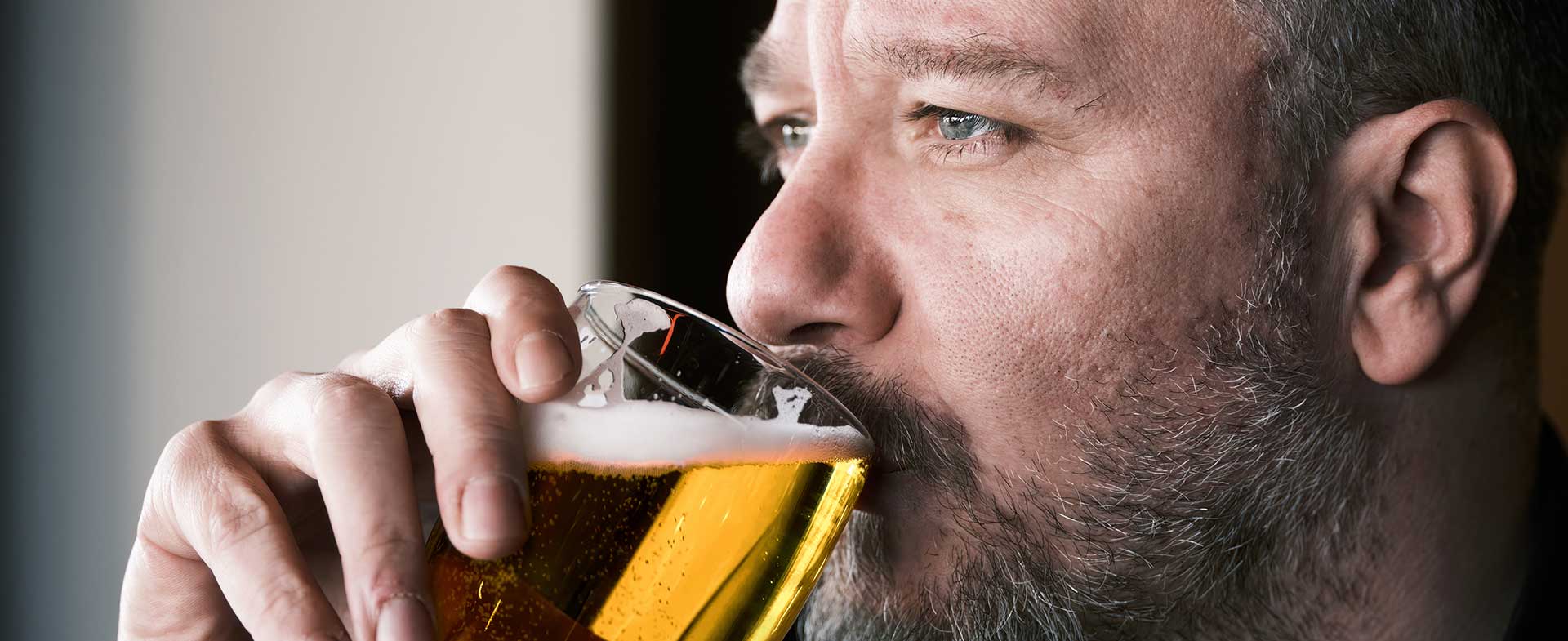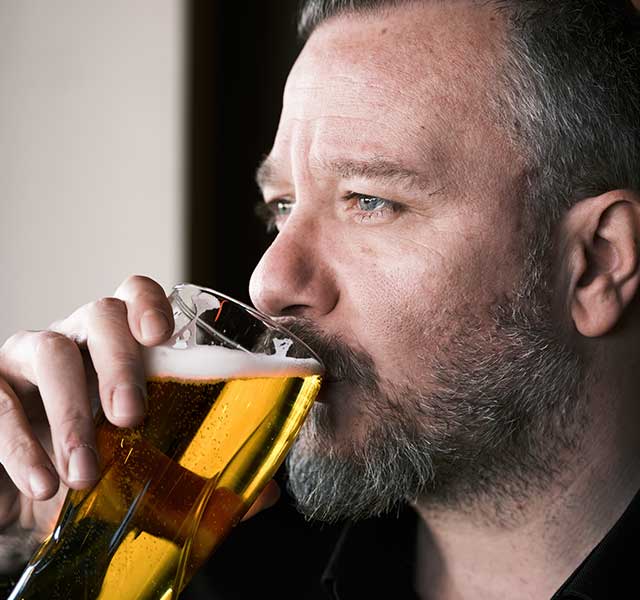More adults are drinking alcohol and using marijuana than ever before, according to research from the National Institutes of Health. A new study revealed that a whopping 30% of people between the ages of 35 and 50 reported binge drinking (five or more drinks on one occasion for men; four or more drinks for women) in 2022, compared to only 23% in 2012. Marijuana use more than doubled among the same group, from 13% in 2012 to 28% in 2022.
“The figures in Michigan are even more alarming,” says Chris Nixon, LMSW, an addiction medicine specialist at Henry Ford Health. “Local work shows a 38% increase in binge drinking and a 44% increase of marijuana use within the middle age group.”
What’s Behind The Rise In Adult Substance Abuse?
According to Nixon, increasing legalization of marijuana across the country coupled with higher levels of stress and anxiety fueled by the COVID-19 pandemic have converged to create a perfect storm for higher rates of substance use.
“Within this age bracket, there have been significant pressures, including changing jobs, financial stressors and increased caregiving responsibilities at home,” Nixon says. “And many people have neglected their physical health as a result.”
Nixon also notes that middle-aged Americans are increasingly turning to marijuana for pain management and they’re experimenting with it as an alternative to opioids and other pain medications. “That and greater social acceptance of marijuana are key drivers behind the increased use in this age bracket,” he says.
What Are The Risks Of Alcohol And Marijuana Abuse?
Contrary to popular belief, substance use is risky at any age, particularly among people who have existing health conditions. In fact, in July, the World Health Organization issued a statement declaring that no level of alcohol consumption is safe for any age group. Studies show that alcohol-related deaths are climbing among people 65 years old and older, and that deaths among women in this age group are occurring at a faster clip than men.

See An Addiction Specialist
Yet, many people still believe that alcohol and marijuana are harmless. “There’s a lot of confusion around ‘safe use,’” Nixon says. “There’s this mindset that if I don’t drink for three or four days, I’m not physically dependent on alcohol—and that marijuana isn’t an addictive substance. But there’s no question that both alcohol and marijuana use can be addictive, and both substances impact the reward centers of the brain and your overall health.”
Research is underway to explore the long-term cardiovascular and respiratory risks of marijuana, but studies confirm that marijuana abuse can lead to memory problems.
Tips And Tricks To Curb Your Substance Use
If you’ve noticed that your daily glass of wine has gotten larger, or you’ve been indulging in marijuana gummies on the regular, there are steps you can take to curb your use.
- Make small shifts. You don’t have to quit everything cold turkey. Instead, focus on making small changes over time. “Set up a plan for yourself, or work with a health professional to gradually reduce your use,” Nixon says.
- Find alternatives. Looking for a substitute for alcohol? Experiment with mocktails, tea or green juice. For marijuana, consider activities that will produce a different type of high: an intense workout, an aromatherapy bath or a long hike with good friends.
- Call in support. Whether you’re trying to kick a daily drinking habit or something more serious, it’s important to find like-minded individuals who can help you achieve your goals.
- Talk to your doctor. Depending on your current level of use, it may be a good idea to consult with your doctor about how to best change a substance abuse habit. “If you notice any physical withdrawal symptoms, particularly with alcohol—things like feeling shaky, nauseous or uneasy—go straight to the emergency room,” Nixon says.
If a family member, loved one or friend has expressed concern about your substance use, if you’re not as engaged with family activities or hobbies, or if substance use has become a focal point of your daily life, it’s important to talk to a healthcare professional.
“If you think you have a problem, working with a specialist who is trained in substance use disorder or attending a recovery meeting through Alcoholics Anonymous or Celebrate Recovery is an important first step,” Nixon says.
Reviewed by Chris Nixon, LMSW, an addiction medicine specialist at Henry Ford Health.



